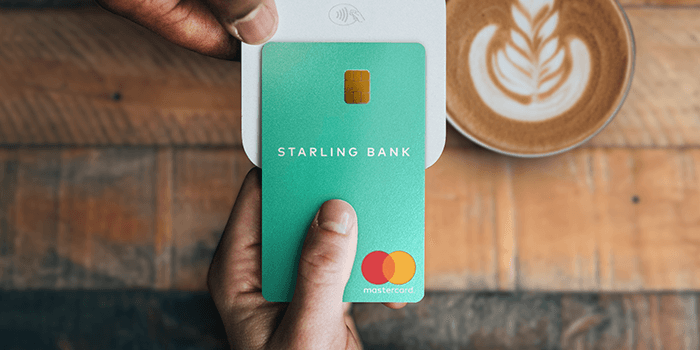Starling CEO Anne Boden on Bounce Back loans and growing during COVID-19 pandemic

Starling Bank has had a good crisis.
While rivals have laid off staff, shut business lines, and set aside huge sums to cover expected losses, Starling has hired more staff, raised £40m ($50m), and continued to sign up new customers.
“We haven’t furloughed people, we’ve hired nearly 100 people during lockdown,” Anne Boden, Starling’s chief executive and founder told Yahoo Finance UK this week. “It’s been pretty good going.”
Founded in 2014, Starling is one of a number of digital-only banks set up in recent years to challenge the dominance of the high street names. The crop of startups, which include the likes of Monzo and Revolut, have all raced ahead to land millions of customers and have attracted over a billion pounds of investment between them.
READ MORE: Monzo to lay off 120 staff
However, not all have fared as well as Starling since the pandemic struck. Monzo, the poster child of the sector, has been forced to furlough employees, cut executive pay, and make layoffs. Revolut has undergone similar belt-tightening.
Boden puts the varying fortunes down to differing customer bases. Monzo and Revolut cater to young, inner city millennials who used the cards on nights out and trips abroad. Starling has found traction with an older, less metropolitan demographic who are more likely to use their card “for the weekly shop at Sainsbury’s” than on a weekend in Saint-Tropez, Boden said.

“Everybody lost a substantial amount of international transactions, but since international transactions are a substantially smaller part of our business than say Monzo or Revolut, that didn’t really make a difference to us,” Boden said.
“We’ve played much more of a long game and our customers are much more profitable customers. During the crisis the average value of our transactions actually went up.”
READ MORE: RBS abandons Monzo-challenger Bó
Starling also has a significant foothold in the business banking market, with 180,000 small and medium-sized business customers. It has continued to sign up new business customers since lockdown started.
“Thankfully we were well positioned to pick up those new accounts,” Boden said. “If this had happened a year earlier, we wouldn’t have had the product. We’ve got a great product now that does an awful lot.”
Part of the reason some businesses are switching is for support loans. Starling is among the group of banks approved to lend under the government-backed coronavirus business interruption loan scheme and the Bounce Back loan scheme.

Starling has so far lent just £3.7m under the Coronavirus Business Interruption loan scheme but £560m under the Bounce Back loans scheme.
“We’ve done much better than our competitors in getting Bounce Back loans there,” Boden said. “There are very few new banks that have done that.”
READ MORE: Fintech Zopa set to launch first banking products
It hasn’t all been plain sailing. Disappointed customers who were turned down also took to social media to complain and Starling was also forced to temporarily suspend. It prompted a public apology from Boden and heckles in the press.
Boden pushes back on suggestions that Starling experienced teething problems with the programme.
“Because we declined some of those loans, we had some backlash on social media,” she said. “Unfortunately, you have to disappoint some people. But that’s what we have to do.
“The majority of customers don’t tweet about the fact that they’ve had a loan. People don’t tell the world about good news. Every week tens of millions of lending is going to small businesses and we’re terribly proud of that.”
READ MORE: Banks brace for surge in COVID-19 complaints
Starling’s approval rate on Bounce Back loans is 86%, a figure Boden defends.
“People asked me, Anne, why is your decline rate so high?” she said. “We don’t think our decline rate was high. We were the only people actually publishing our decline rate.”
While the Bounce Back loan scheme has brought some unwanted heat to Starling Bank, it is proving a significant positive in other ways.

Starling was awarded £100m last year from the Alternative Remedies Fund, an RBS fund meant to stimulate competition in banking. The bank was bound by certain targets under the grant award.
One of them including lending £913m to businesses by the end of 2023. As of February, Starling had lent just £1m towards that target. However, the Bounce Back lending means the startup is now well on its way to hitting its goal.
Read more: Starling Bank seeks £35m in new competition funding
Bounce Back loans have also helped attract new customers, putting it on track to hit its goal of 450,000 business customers by the end of 2023. However, Boden says only 10% of new sign-ups go on to apply for a Bounce Back loan, suggesting there is less of an impact here.
While the Bounce Back are providing a leg-up for now, they may end up being a problem further down the line. Banking lobby TheCityUK haD warned in May that UK businesses are carrying as much as £100bn of unsustainable debt. Banking executives have privately told the Financial Times they fear as many as 50% of Bounce Back loans could eventually fall into default.
“I think the default rates on these loans are going to be very high,” Boden said. “But that doesn’t mean there was really any alternative for the chancellor. The chancellor decided to get money out there into the hands of small businesses and that’s why he launched this scheme. The consequence is there are going to be defaults.”
READ MORE: UK banks brace for £6.7bn COVID-19 hit
Bounce Back loans at 100% guaranteed by the government, meaning lenders like Starling aren’t on the hook for losses, but banks are required to try and collect on these loans before they can seek compensation from the Treasury. That has the potential to create a lot of negative headlines about banks going after devastated entrepreneurs who have seen their businesses collapse during the crisis.

“All the banking industry is aware that companies are not going to be able to repay their loans and there will be collections activity,” Boden said. “The industry as a whole is working together with the British Business Bank [the state backed bank that runs the scheme] to come up with the procedures as to how this is going to be done.
“There’s centralised thinking about the best way of doing this. All the major players are involved in this.”
Beyond issues with Bounce Back loans, Boden and other CEOs are going to have to steer their institutions through what could turn out to be the worst economic downturn in the UK for 300 years.
READ MORE: Three months on, economic damage of lockdown is clear
Boden is sanguine about the future.
“In the world going forward, it is going to be very much a two-speed economy,” she said. “It’s going to be those businesses that are not impacted because they’re in digital businesses and those businesses have prospered. And it’s those that are really impacted like the catering industry and the hospitality industry.”
Starling is continuing to invest in expansion even as it faces into the downturn. Yahoo Finance UK reported on Friday that the bank is applying for another £35m from the Alternative Remedies Fund to expand into new parts of the small and medium-sized business market.
With a recession ahead, banks will almost certainly tighten their lending criteria to limit losses. But Boden suggests Starling has a moral duty to keep lending as some parts of the economy face historic downturns.
“We have an obligation to support all sectors and we’re lending to all sectors but it’s not a homogeneous environment,” she said. “You have to take it industry by industry.”

 Yahoo Finance
Yahoo Finance 